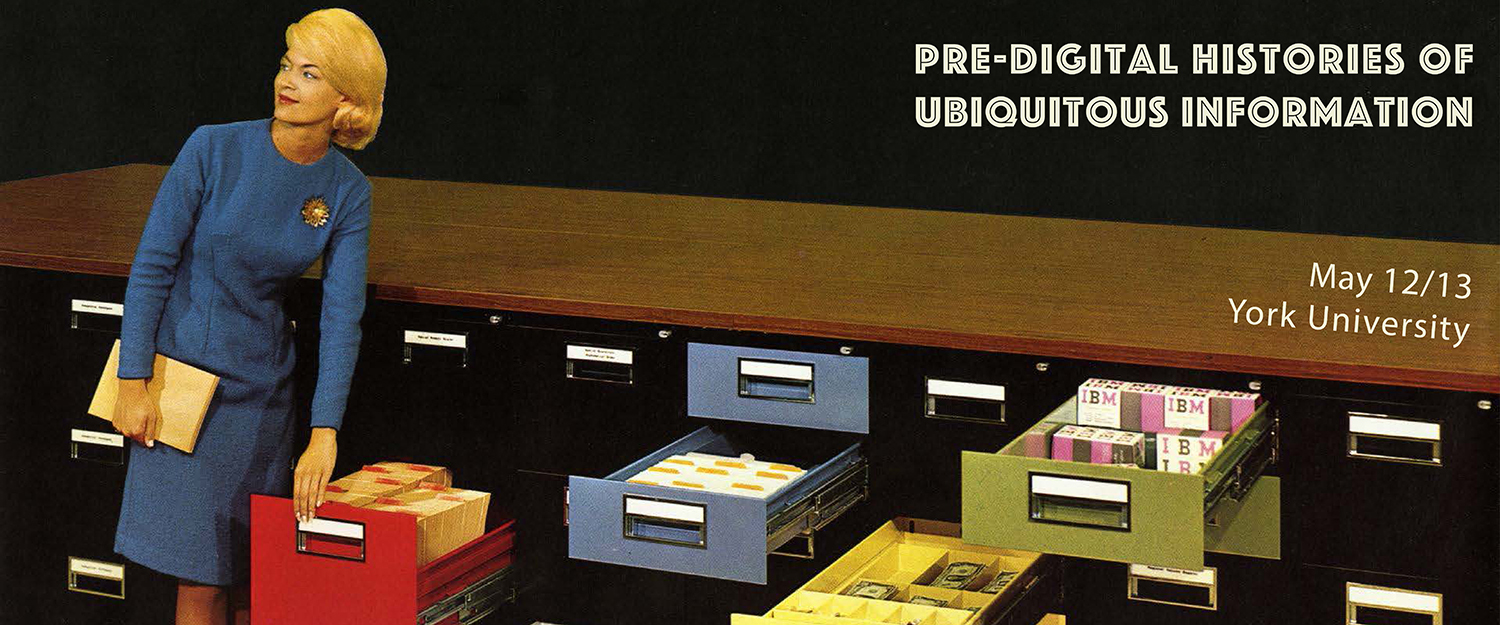
About
Writing in 1928, Paul Valery described a world in which access to art and culture “will appear and disappear at a simple movement of the hand, hardly more than a sign.” Looking to situate Valery’s intuitions about ‘the conquest of ubiquity’ in the context of the cultural and technical developments of recent media history, this symposium will bring together researchers interested in exploring how the problem of imagining and managing everyday information was addressed in the century leading up to the conceptualization of ubiquitous computing by Mark Weiser in 1988. How did a particular understanding of ubiquity, associated with convenience, automation as well as ‘information overload’, become central to the articulation of “mass society”? What were the infrastructures and cultural practices - the techniques in information processing - bound up within this moment?
The symposium will take place on May 12-13 in Toronto and is open to the public. Please register here.
The symposium is co-organized by Mark Hayward (York University) and Craig Robertson (Northeastern University) with support from the Liberal Arts & Professional Studies Seed Grant Fund.
The organizers would also like to thank the Department of Communication Studies and the McLuhan Centre for Culture and Technology, University of Toronto. The organizers would also like to thank Kyler Zeleny and Mary Grace Lao for their essential contributions to the organization of this event.

